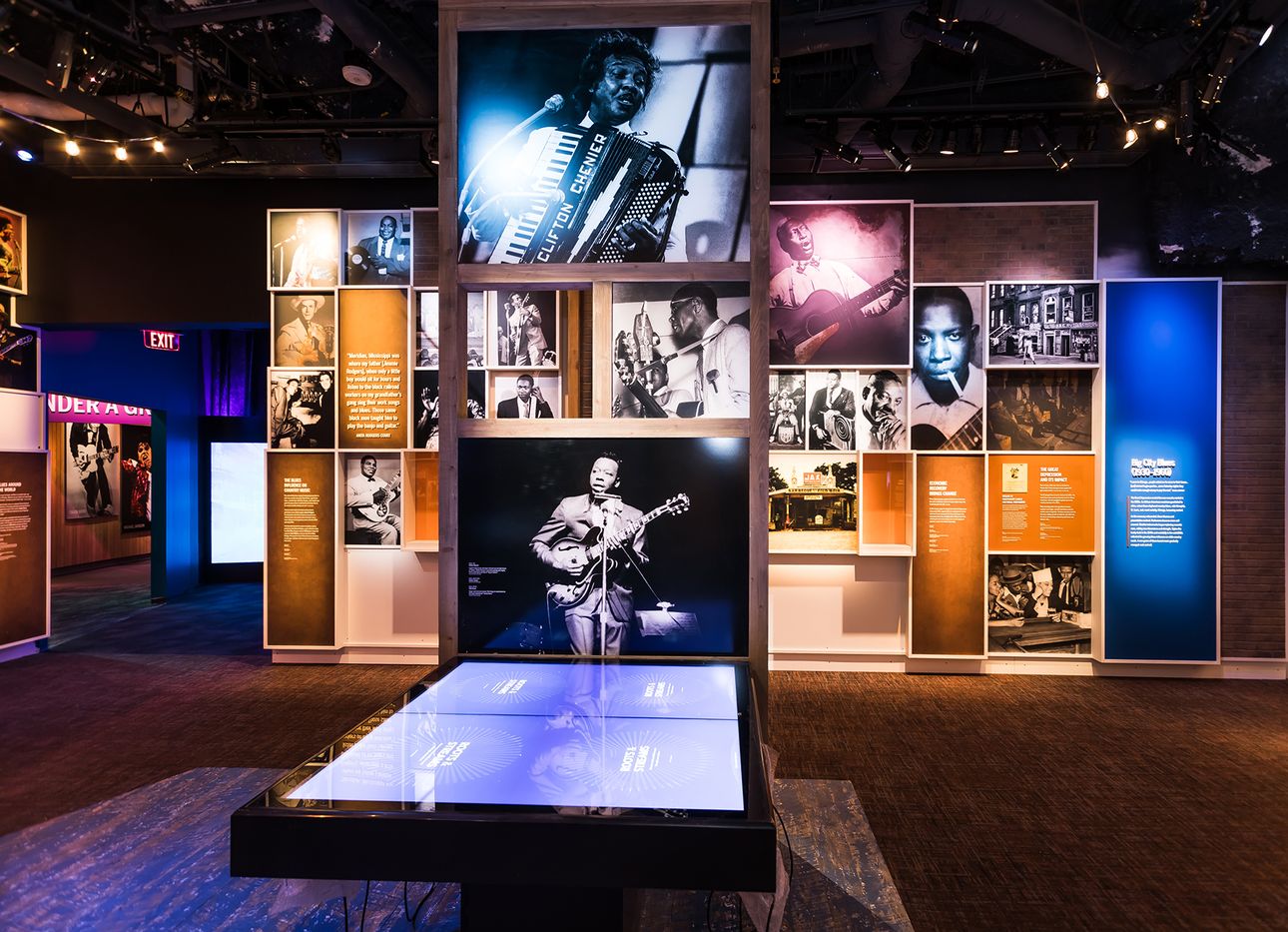
A New Nashville Museum Traces 400 Years of Black Music
More than two decades in the making, the National Museum of African American Music opened last month in Nashville, Tennessee, on Martin Luther King Jr. Day. Through its seven galleries and the some 1,500 objects in its collection—which range from one of Jimi Hendrix’s wrecked guitars to a trombone owned by the late musician Helen Jones-Woods, who played in the first integrated all-female jazz orchestra—more than four centuries of Black music, and the ways in which it contributed to the United States’s soundscape, are unpacked, preserved, and celebrated. “We want visitors to see how African-American music affects the music they listen to now,” senior curator Dr. Steven Lewis says. “And we hope they leave the museum with a deeper understanding of how today’s music fits into the context of Black music history as a whole.”
The institution takes visitors on a chronological journey through the history of American song, reaching as far back as the instruments and dance traditions brought to the country by enslaved Africans in the early 1600s. One section, “Wade in the Water,” examines the roots of gospel music, while another, “A Love Supreme,” considers the Harlem Renaissance and the early days of jazz; a segment called “The Message” surveys the beginnings of hip-hop. There are also several tributes to lesser-known acts, including the early blues singer Ma Rainey and Sister Rosetta Tharpe, a trailblazing queer woman whose rock ’n’ roll guitar stylings influenced musicians including Chuck Berry and Little Richard.
The experience, enhanced with interactive activities for visitors, who can make hip-hop beats or sing “Oh Happy Day” with a virtual gospel choir, paints a compelling picture of how culture influences sound and vice versa. “African Americans are responsible for the musical legacy of our country,” Dr. Lewis says. “That music and its artists don’t emerge out of a vacuum—they were influenced by their environment, their history, and what was going on around them. We want to set all of that in context.”